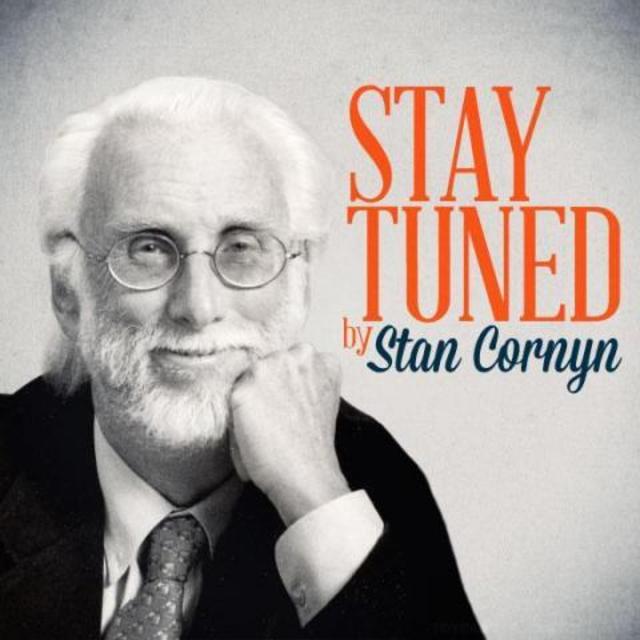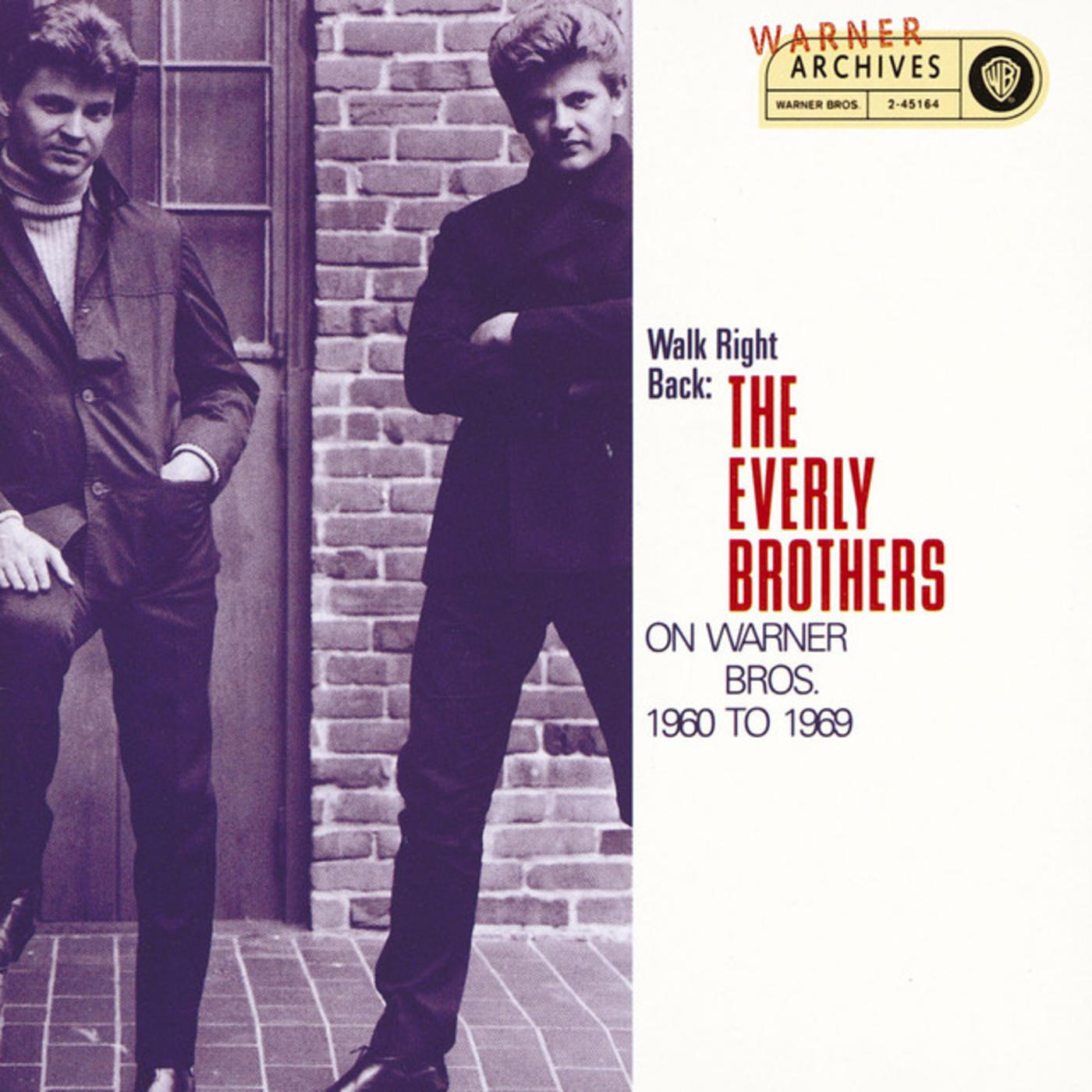Stay Tuned By Stan Cornyn: Warner Records Signs First Million Dollar Contract in Record History

Every Tuesday and Thursday, former Warner Bros. Records executive and industry insider Stan Cornyn ruminates on the past, present, and future of the music business.
1960
Studio and Label Owner Jack Warner was about to shut down his two-year-old record label – its costs had kept growing, its sales had not – when he got a call from label head Jim Conkling. Just off a call from Nashville, Conkling had a deal that’d been offered. Jim told Jack, “This deal,” Jim told Jack, “could change everything.”
He'd been offered The Everly Brothers, who’d had a solid string of hits on Nashville’s Cadence label, but now yearned for Hollywood. “With us,” Conkling said, and went into the deal’s offer: For openers, the total guarantee was a million dollars, but...only at a hundred thousand a year for ten years.
When he heard the deal’s cost, “No way,” responded Warner. “One million dollars” to sign a teen act from Nashville? Two brothers, Don and Phil Who? Jack Warner’s studio colleagues liked the Everly Brothers signing, but revolted over its cost. That “Conkling label” was still buried in returns.
Herman Starr told Conkling, “If the Everlys are so hot, go get the signing money from your distributors.”
To sign the Everlys, Conkling did. He called WBR’s indy distributors, getting them to lend the label their share of the cash it needed. This deal was to last for ten years, so the million would be spread over a decade. To sign this deal took 45 days of phone calls, lawyers getting paid for 300 hours, and that cost the distributors, too. But Warner Conkling did it. Starr and Company had their zero-risk deal.
Don and Phil Everly (seldom referred to as “Phil and Don” Everly, for some reason) loved the size of this million-dollar investment in them, plus they felt warm over the prospect of a Hollywood Studio helping steer their futures. Acting and all. They moved out to Hollywood. Better, they thought, than staying in Nashville with manager Wesley Rose, who also owned the leading country music publisher, Acuff-Rose. Acuff-Rose repped song writers, like Felice and Boudleaux Bryant, writers of earlier Everlys’ country hits. But the Everlys dreamt of more. More did not feel like stuck in Nashville.
When the Everlys broke away from Rose, Rose broke right back: “No more of my songs,” he told them, and that meant leaving their source hits, ‘bye to the Bryants. Leaving also meant Don and Phil now couldn’t even record songs Acuff-Rose published songs that they’d written themselves, because they (as writers) were stuck under their writer contracts to Rose, too.
But leave home they did. For the next ten years, that million dollar advance kept getting paid, and Warner Bros. Records execs learned to recognize which Everly was which (think of their hair: Don = dark; Phil = fair).
This BIG deal (it made headlines in trade papers) all began as Conkling had hoped. BIG. First single: “Cathy’s Clown” went to #1 on Billboard’s Hot 200. It stayed up there for five weeks.
With that hit, Conkling behaved like Conkling, looking for the adult pop market, despite the Everlys younger appeal. Jim first turned to one of his middle-age music makers, Lou Busch, to produce. Jim wanted to add strings, to find songs like “Temptation,” and it was a one-album turn. It worked, but quickly the Everlys slid back to their sound again: “So Sad.” Then “Lucille.”
Inside WBR’s decrepit offices, the smalled-down staff learned how having hits felt. Execs told neighbors Everly stories (often made up) at dinners. Their kids talked about dad’s work, too. In May, 1960, WBR had two top ten hits: Cathy’s Clown and Connie Stevens’ 16 Reasons. The Everlys even outsold Elis for a few weeks.
Check out a video of the Everlys performing "Cathy's Clown" here:
The Everlys adapted to Hollywood life. As hot bachelors, they dated gorgeously. Conkling posed for pictures with them. All smiling, because … “Crying in the Rain,” “Ebony Eyes,” “Walk Right Back,” and … album after single.
Forever? Not to be.
In November 25, 1961, they’d avoided being drafted into the regular Army by enlisting in the U.S. Marine Corps Reserves. A six-month record-making interruption followed.
Their last Top Ten was 1962’s “That’s Old Fashioned,” a song given them by their old mentor, Archie Bleyer at their previous label, Cadence. After that, for their 17 singles released during the next seven years of their contract, only three made the Hot 100, none higher than #31.
By 1962, they had earned around $35 million from record sales. But now the pop record business was those London glam rockers, and those Haight-Ashbury hair bands and all. Goodbye early ‘60s. Still, back in 1960-61, their heat had been welcome in Burbank, not to mention Nashville.
The ten years had passed slowly. The Everlys even split as “Brothers,” and Warner Bros. had moved on to its own -- the late ‘60s … then 1970s, when pop had become a beat boom. Still cash felt good to Don and Phil.
By then, Don and Phil had set up their own label, Calliope Records, housed up the street from the studio. Calliope went nowhere. Their old Nashville label, Cadence, kept on releasing old Everly Brothers sides from its vault.
And now, half a century later, in the 2010s? The Everlys perform seldom, occasionally for Events. They’ve long gone their own ways. Got into drugs like Ritalin. Don got married four times; Phil only three. Children, yes. They’d retired, to be sure.
But worth remembering: from the Everlys’ sidewalk star on Hollywood Blvd. (7000’s its address there). Critics wrote about them as being a music history “Source of Group Harmonies,” that said about acts they’d influenced, from the Beatles to BeeGees. And beyond.
And Warner Bros. Records survived this million dollar deal by plenty.
Good enough to satisfy Uncle Jack? Not really, but... Wait, Conkling’s phone’s ringing again!
Stay tuned.
•••
Where Are They Now:
The Everly Brothers: The brothers separated for much of their post-Warner performing lives, with a few dramatic reunions. They still live apart, presumably with their final wives.
Venitia Stevenson: She and Don Everly had a chaotic marriage, off and on, with three children. One of these, their daughter Erin Everly, had her own violent marriage with Axl Rose of Guns N’ Roses.
Wesley Rose: He remained a major publisher of country music for decades. In 1985, he and his partner, Roy Acuff, sold their company, Acuff-Rose. In 1986, Wesley made it into the Country Music Hall of Fame. He died in Nashville in 1990.

